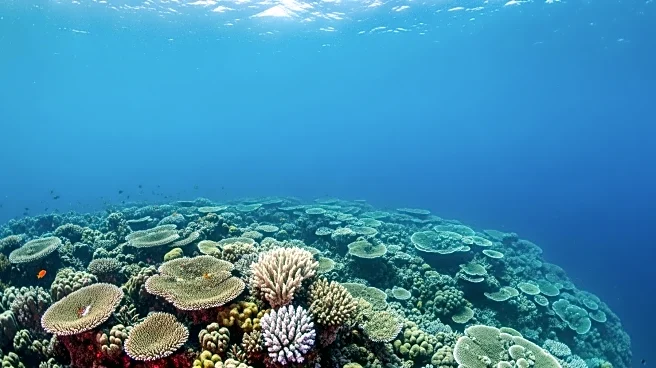What is the story about?
What's Happening?
Scientists have announced that the world has reached its first irreversible climate change tipping point, marked by the mass die-off of coral reefs due to rising ocean temperatures. This development highlights the severe impact of climate change on marine ecosystems, with coral reefs being particularly vulnerable to temperature fluctuations. The warming oceans have led to widespread coral bleaching, a phenomenon where corals lose their vibrant colors and essential symbiotic algae, ultimately leading to their death. This event underscores the urgent need for global climate action to mitigate further damage to marine biodiversity.
Why It's Important?
The mass die-off of coral reefs has significant implications for marine biodiversity and the global environment. Coral reefs are vital ecosystems that support a diverse range of marine life, and their decline can lead to the loss of habitat for numerous species. Additionally, coral reefs play a crucial role in protecting coastlines from erosion and supporting fishing industries. The irreversible nature of this tipping point suggests that without immediate and effective climate action, the damage to marine ecosystems could have long-lasting effects on global biodiversity, food security, and coastal communities.














